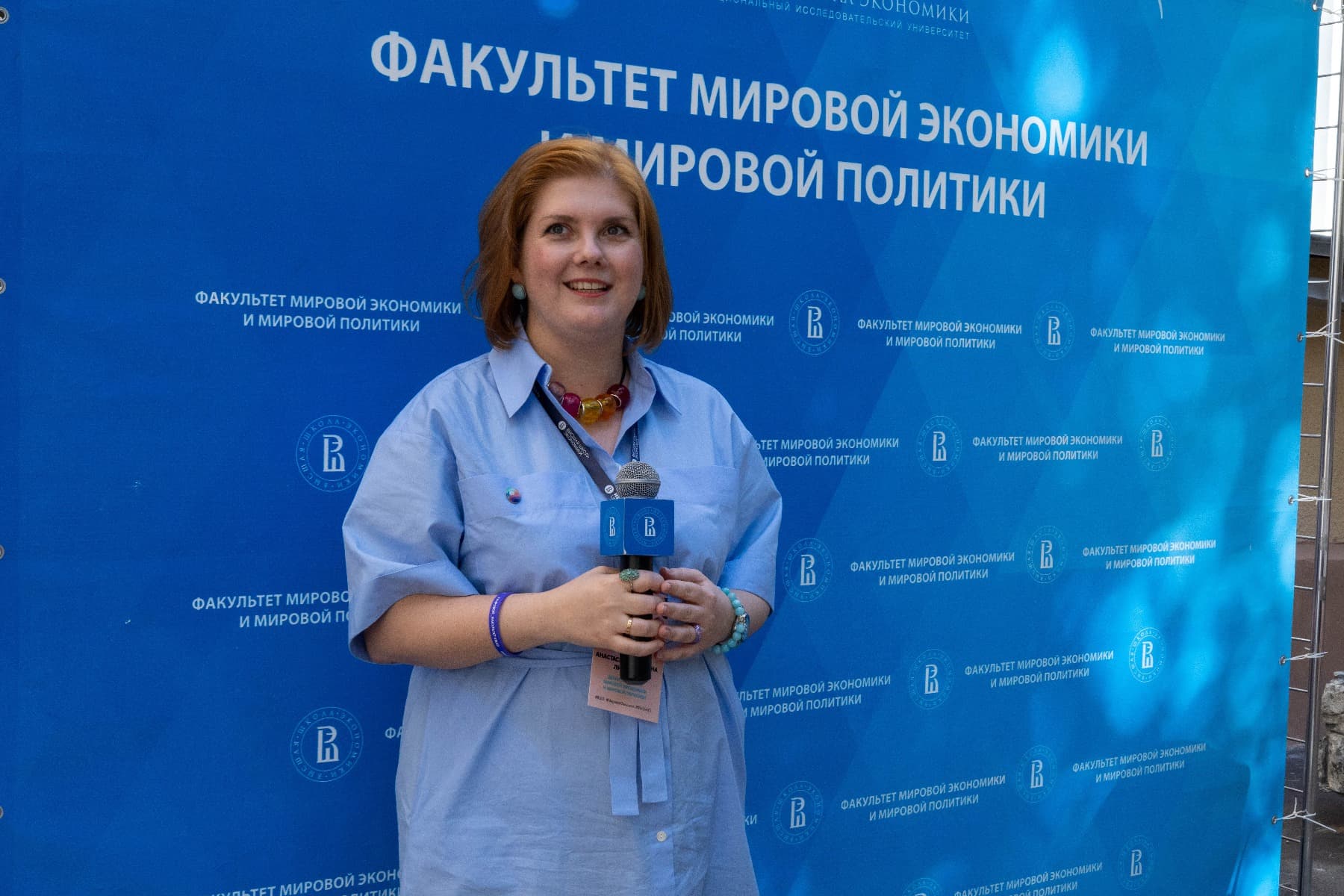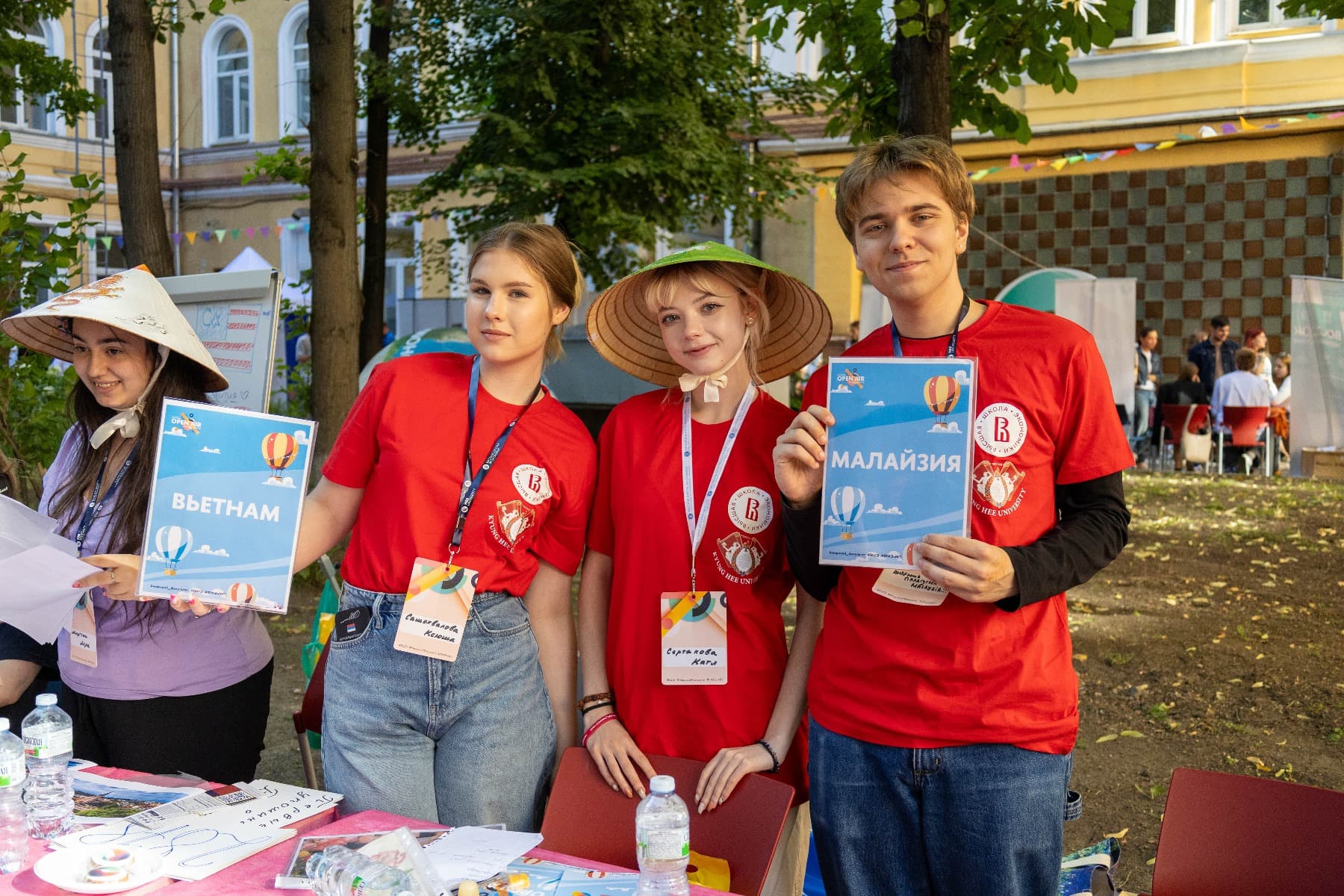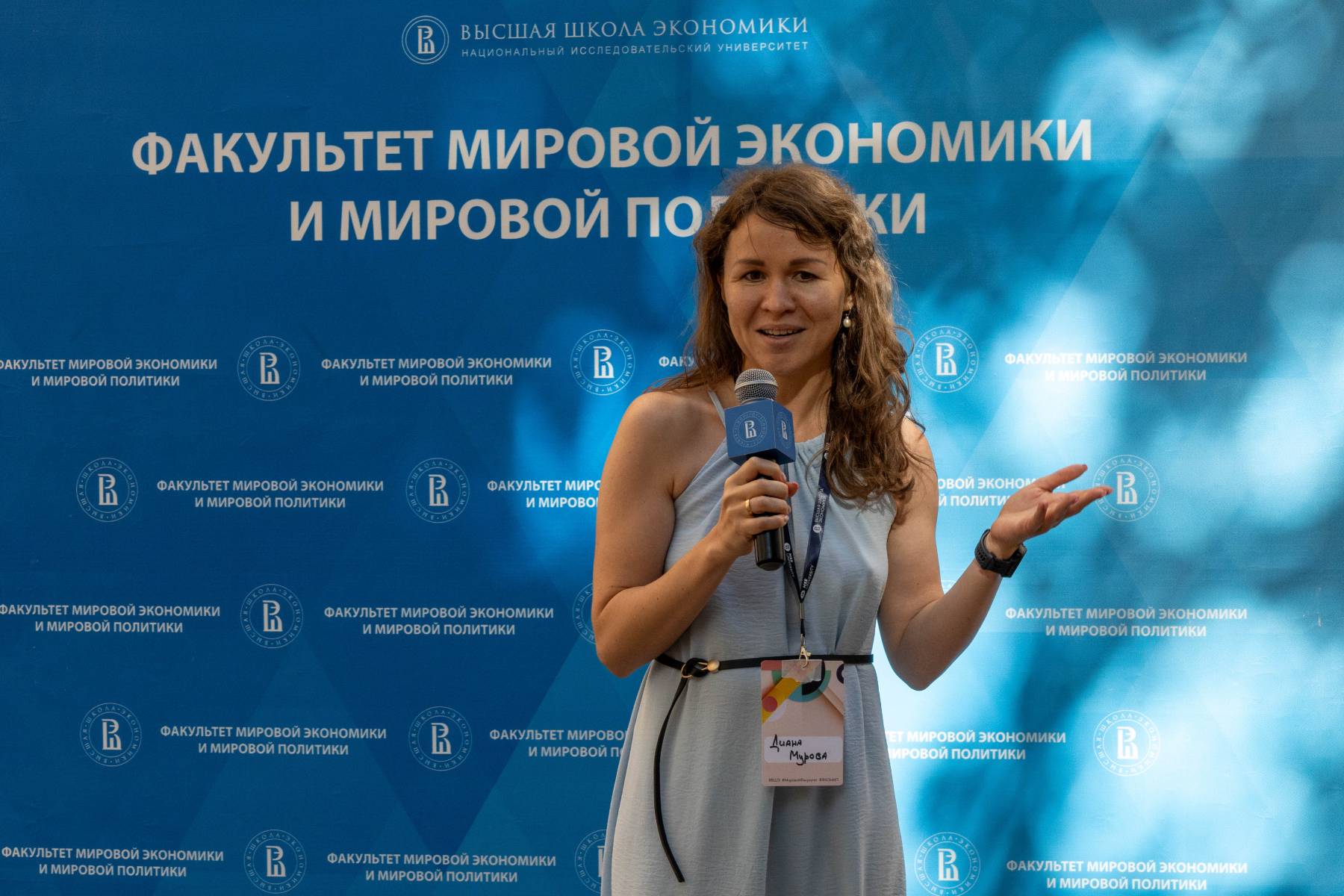Open Air for Aspiring Experts in International Affairs: Internships in Africa, Mobility in Brazil
In early July, the HSE Faculty of World Economy and International Affairs (WEIA) on Malaya Ordynka hosted the annual Open Air Festival of its bachelor's programmes. In a relaxed atmosphere of the inner courtyard, guests interacted with WEIA administrators, faculty members, students, and graduates. Chinese characters and ice cream, origami and photo sessions, Portuguese desserts and Korean souvenirs, Turkish sweets, and African stickers were just a fraction of what guests could taste, enjoy, or win in quizzes testing their knowledge of the world.
More than three hundred guests visited educational programme stalls, asked essential questions, and received all the information they needed about admissions, minimum score requirements, and academic and extracurricular life at WEIA. Most importantly, they had the opportunity to immerse themselves in the atmosphere of the faculty.

In her welcoming address, the faculty Dean Anastasia Likhacheva shared her experience of studying at the faculty more than 15 years ago and discussed the continuous expansion of its areas of study. Today, students of the faculty are sought after by prospective employers while still in their third or fourth year, and graduates never have trouble finding their first job. The central objective of educational programmes offered by WEIA is to prepare students for an interesting and rapidly advancing career, regardless of the sector or region of the world they choose to focus on.
The Dean also introduced a new educational format, the Africa Track comprising both educational and applied projects for students.

The Africa Track is a system of educational and applied activities supervised by the HSE Centre for African Studies. The Centre specialises in expert and analytical work, studies the markets of African countries, assesses financial, legal and political risks, and involves WEIA students in these efforts. 'There is a shortage of human resources available for working with Africa,' according to Andrey Maslov, Director of the Centre. 'It is essential that by the time they receive their degree, students are career-oriented, motivated, and have completed at least one internship in Africa. Some of the students working with us earn competitive salaries and travel to Africa on business.'
WEIA students wishing to specialise on Africa receive an individually tailored development plan based on their interests. 'These plans include internship and travel opportunities based on the specific part of Africa they wish to focus on and their sectoral specialisation,' Andrey Maslov explained.

Olesya Kalashnik, a third-year student, shared her own experience. She is actively involved in the Centre's activities and has participated in work trips to Tanzania and Ethiopia. 'It became clear to me that Africans expect us to act, not just talk,' according to Olesya. 'My personal highlights include meetings with the Regional Director of the International Telecommunication Union and the head of ICT at the UN Economic Commission for Africa. For me, these meetings are proof of the need to work in the field.'

The Public Talk was the most personal part of the festival. Prospective students and their parents learned firsthand about the admissions process and heard from graduates about their personal growth, achievements, and experiences. For example, Anton Matvienko, who holds a Bachelor's in World Economics, said that since his graduation in 2018, he had been working in the automotive business. 'My first internship was with Honda, then I moved to Kia, and for the last couple of years I have been working on KAMAZ passenger vehicles projects,' he shared. According to Anton, he has never encountered a situation where a door was closed to him. 'The reason was that my student ID card and later my degree from HSE University, which served as a sort of multi-passport,' he explained.

Tatyana Semenyuk, a graduate of the Bachelor’s Programme ‘International Relations,’ recalled her experience with the admission process and her time studying at HSE University. 'I had come from far away,' she said. 'My dad and I went to the Admissions Office, and I was so nervous.' Today, it warms my heart to see how our faculty makes even the admission process enjoyable.' During her studies, Tatyana's favourite subject was history. She also had a passion for foreign languages: by the time she was admitted, she was already fluent in English and Spanish, and at HSE University, she chose to study Portuguese. This later enabled her to spend six months in Brazil under the mobility programme.

Another speaker at the Public Talk was Diana Murova, a graduate of the Bachelor's Programme 'World Economy'. 'I earned my degree from the Department of International Monetary Relations in 2012 and spent a year studying in Beijing on a grant that HSE University helped me secure,' she said. After graduation, Diana Murova chose to pursue a career in finance and later worked with major international banks. 'Thanks to my studies at HSE University in the World Economy programme, where I interacted with a diverse range of people virtually non-stop, and thanks to the support of the alumni community, my interest in new things was always kept alive,' she says. 'This has helped me stay connected to the world. I encounter HSE University alumni in every corner of the globe. Even if we weren’t close friends during our student years, we are always delighted to see each other and offer support.'
See also:
‘Our Task Is to Preserve the Market Segment as Much as Possible’
What risks is the Russian financial system facing today? What is the Central Bank of Russia going to do to mitigate them? Why do we need a high key rate? Has the regulator changed its approach to the building of forex reserves? Will the regulator remain hawkish on cryptocurrencies? Ksenia Yudaeva, First Deputy Governor of the Central Bank of Russia, answered these and other questions during a round table entitled ‘Russia’s Financial Sector under New Global Conditions’. The event was held as part of the XXIII Yasin (April) International Academic Conference.
Rethinking American Foreign Policy for a New Era
On March 17, 2015, Dr Thomas Graham, a managing director at Kissinger Associates, an international business consulting firm, spoke at a seminar on Rethinking American Foreign Policy for a New Era conducted jointly by HSE’s Faculty of World Economy and International Affairs and the Russian Council on Foreign and Defense Policy. Dr Graham has been working with HSE for quite some time, visiting the university in 2013.
‘We are Leaving the Door Open’ Australian Ambassador to Russia, Paul Myler
On November 15-16, Brisbane will be hosting the next G20 summit. At a meeting with HSE students the Australian Ambassador to Russia, Paul Myler talked about prospects for improvement of the world economy and how relations between Russia and the West can be normalised.
Uncertainty in the Global Economy
On October 9th, a seminar on the state of the global and monetary economy took place at the Higher School of Economics. Evgeniy Yasin shared his thoughts on this topic.
What will Capitalism in the 21st Century be Like?
On September 24th 2011, Craig Calhoun, new Director of the London School of Economics, gave an open lecture at the HSE International College of Economics and Finance on ‘Social and Political Challenges Facing Global Capitalism’.
Michael McFaul: ‘We Hope that We’ll Have a Normal Relationship’
On May 25th Michael McFaul, US Ambassador in Russia, professor at Stanford University, gave an open lecture to the students of the Higher School of Economics.


